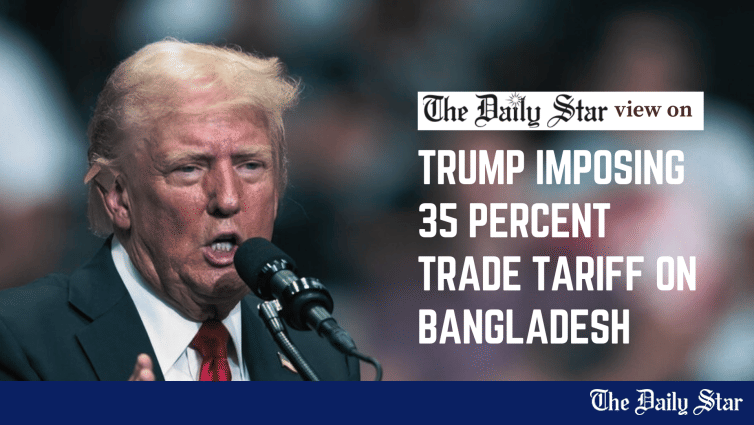Saif
Senior Member
- Messages
- 17,442
- Likes
- 8,380
- Nation

- Residence

- Axis Group


2nd round of negotiations begins
The second round of talks between Bangladesh and the United States over tariff issues began on Wednesday in the US capital, Washington...
 www.newagebd.net
www.newagebd.net
35PC TRUMP TARIFF
2nd round of negotiations begins
Staff Correspondent 09 July, 2025, 23:58
The second round of talks between Bangladesh and the United States over tariff issues began on Wednesday in the US capital, Washington.Bangladesh-themed souvenirs
The first day of three-day talks began at 9:00pm (Bangladesh time), according to a message received in Dhaka.
Commerce adviser Sk Bashir Uddin was leading the Bangladesh side with the negotiations with the United States Trade Representative, the agency responsible for promoting US foreign trade policies.
Bangladesh national security adviser Khalilur Rahman joined the meeting virtually from Dhaka.
Dhaka has pinned its hope on the negotiations to avert 35 per cent US tariff on its exports announced by president Donald Trump in a letter to chief adviser Muhammad Yunus on Tuesday.
Bangladesh is among the first countries to resume negotiations following the issuance of president Trump’s letter to leaders of 14 countries.
Dhaka also hopes to build on the progress made during the first round of negotiations on June 27 after the US president had announced 37 per cent duty on Bangladeshi exports in April.
The imposition of 37 per cent tariff was, however, suspended until July 9.
In 2024, Bangladeshi exporters enjoyed a tariff of about 15 per cent in shipping their products worth about $8.4 billion to the US, the single largest export destination accounting for over 16 per cent of the country’s overall export of $50 billion in the year.
The new US tariff would come into effect on August 1.
2nd round of negotiations begins
Staff Correspondent 09 July, 2025, 23:58
The second round of talks between Bangladesh and the United States over tariff issues began on Wednesday in the US capital, Washington.Bangladesh-themed souvenirs
The first day of three-day talks began at 9:00pm (Bangladesh time), according to a message received in Dhaka.
Commerce adviser Sk Bashir Uddin was leading the Bangladesh side with the negotiations with the United States Trade Representative, the agency responsible for promoting US foreign trade policies.
Bangladesh national security adviser Khalilur Rahman joined the meeting virtually from Dhaka.
Dhaka has pinned its hope on the negotiations to avert 35 per cent US tariff on its exports announced by president Donald Trump in a letter to chief adviser Muhammad Yunus on Tuesday.
Bangladesh is among the first countries to resume negotiations following the issuance of president Trump’s letter to leaders of 14 countries.
Dhaka also hopes to build on the progress made during the first round of negotiations on June 27 after the US president had announced 37 per cent duty on Bangladeshi exports in April.
The imposition of 37 per cent tariff was, however, suspended until July 9.
In 2024, Bangladeshi exporters enjoyed a tariff of about 15 per cent in shipping their products worth about $8.4 billion to the US, the single largest export destination accounting for over 16 per cent of the country’s overall export of $50 billion in the year.
The new US tariff would come into effect on August 1.







